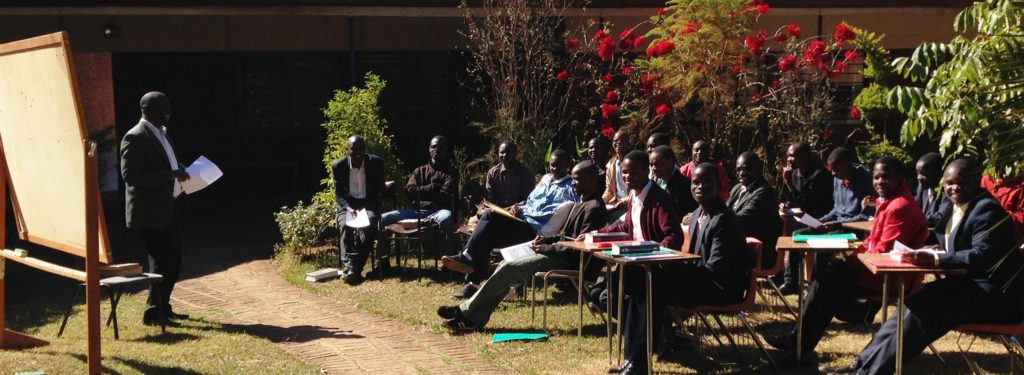It’s cold, go outside and warm up!
“It’s cold, go outside and warm up!” Anyone growing up in the USA Midwest should find that a little strange. Mom would say, “It’s cold outside, come in and warm up.” Inside is warm. Outside is cold in the winter. It’s the opposite here in the middle of Malawian winter.
Temperatures get as low as 45°F at night. All our buildings and houses here are brick and concrete fridges that hold in the cold. But in the dry, sunny winter it’s 70°F and above during the day. So, what do you do? After shivering for a while in my office with my feet on icy concrete, I go out and stand in the warm sun. Everyone here does it.

I could give a dozen other examples of things that seem upside down to this Midwesterner, even after 25 years living here. Some of those things are much more important than the strangeness of going outside to warm up.
One example is our different cultural views of what is righteousness.
Imagine the eulogy of an American businessman. This is a bit of a caricature, but I could imagine a eulogy going something like this, “Mr. Hard-Worker was a really, really hard worker. He provided well for his family. He built up his business from nothing. He was gruff and rude, but hey, that’s Fred.” I think we Americans view hard work as a very high cultural value or righteousness. Being rude is bad, but not too bad if it means you get work done.
Now, again this is sort of a caricature, but I could imagine this eulogy in these parts, “Mr. Get-Along was a very peaceful man. He never got angry and was always polite and hospitable. Of course, he couldn’t hold down a job and was unsuccessful at his farming, but what an admirable man he was.” Getting along and being polite is a very high cultural value here. Failing to work very hard is bad, but not too bad if you have managed to get along with everyone.
These big differences in culture can be all at once fascinating, frustrating, enlightening, and depressing for us pastors working in a culture that is very different from our own. Let me share a more profound difference we’ve been studying that really falls on the side of fascinating and enlightening.
Recently, we have been studying the different views that people groups have on what God requires and what he gives. Most Westerners like we Americans view things according to a Western law-based view– guilt and innocence. We talk about the Word that way, too. God has an unchangeable and unnegotiable demands of us. We fail to obey but Jesus obeyed for us and put his innocence on us. The Bible certainly speaks to us in those terms, but it also portrays God’s demands and promises in other ways, ways that probably connect better with people around here.
One way is to think in terms of honor and shame. We are unworthy and shameful because of who we are and how we are. But through Christ, our honor in the eyes of the Father is restored. We are his sons, valued and loved.
Another way to view things is in terms of fear and power. We are harassed and frightened by the evil powers of Satan, sin, and death. But through Christ’s power, we have overcome those fears and have confidence before the Father. God’s Word speaks in all three ways: guilt/innocence, honor/shame, and fear/power. To me, this is fascinating stuff and gives me new insight as I learn about God and his Word.
If you come to Malawi in the winter, you might have to think upside down. Go outside when you’re cold. As you share the Word with others in the USA, consider some ways that might seem upside down. Who do you know who suffers from shame? He or she has honor in Christ. If someone is stressed and fearful, let them know they have power and confidence to even stand before God, in Christ.
Missionary Paul Nitz lives in Malawi and is the Principal of the Lutheran Bible Institute
Please pray for those working in fields that are ripe for harvest. Share their story, engage with future news and receive updates. Go to this link to learn more about our mission fields in Africa and how the Holy Spirit is working faith in people’s hearts https://wels.net/serving-others/missions/africa